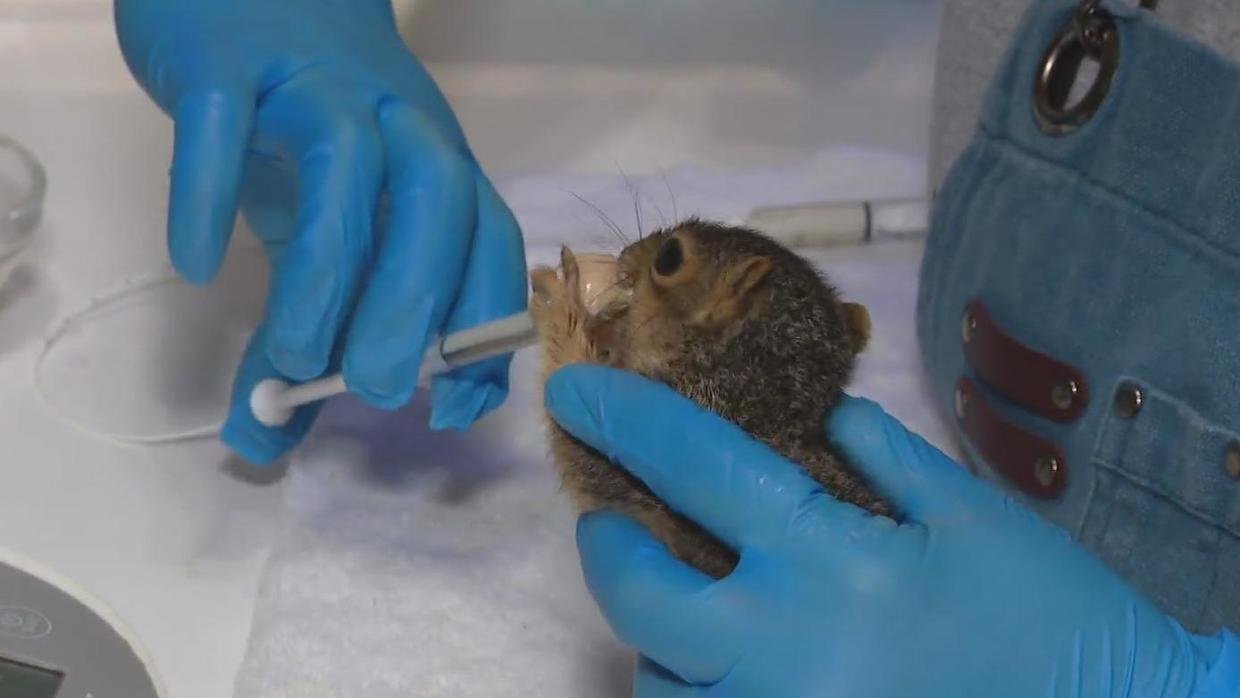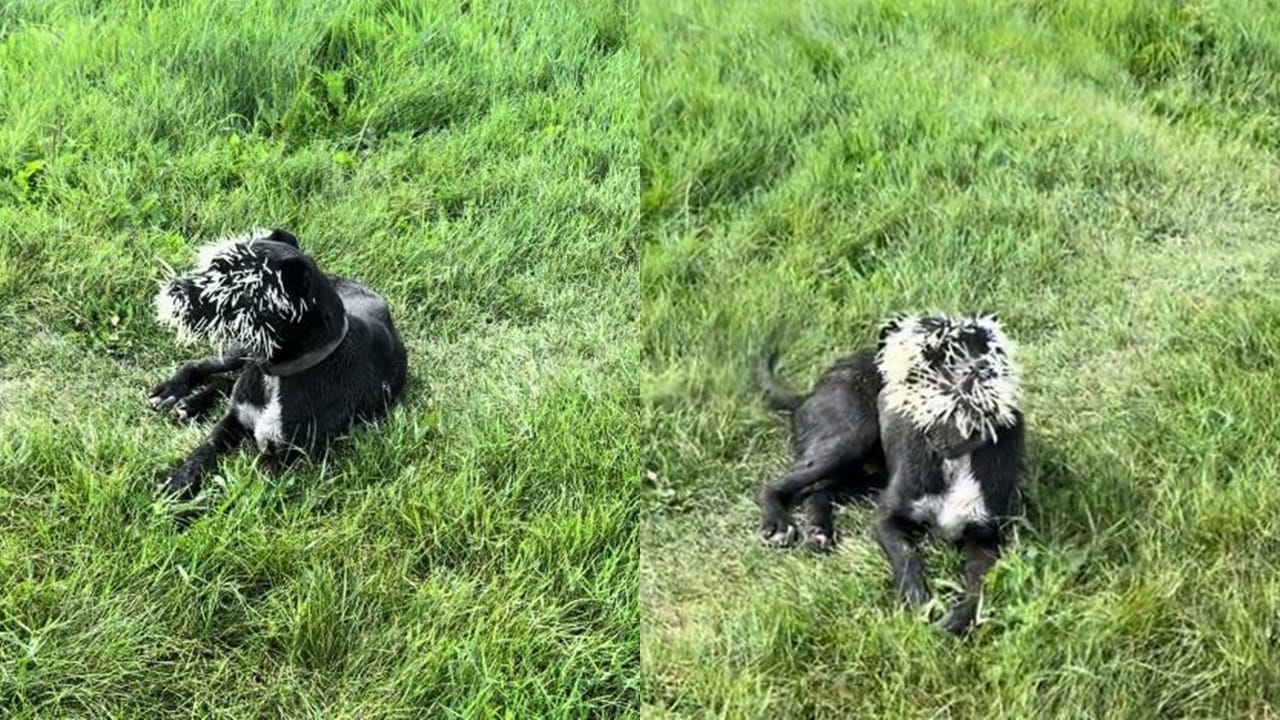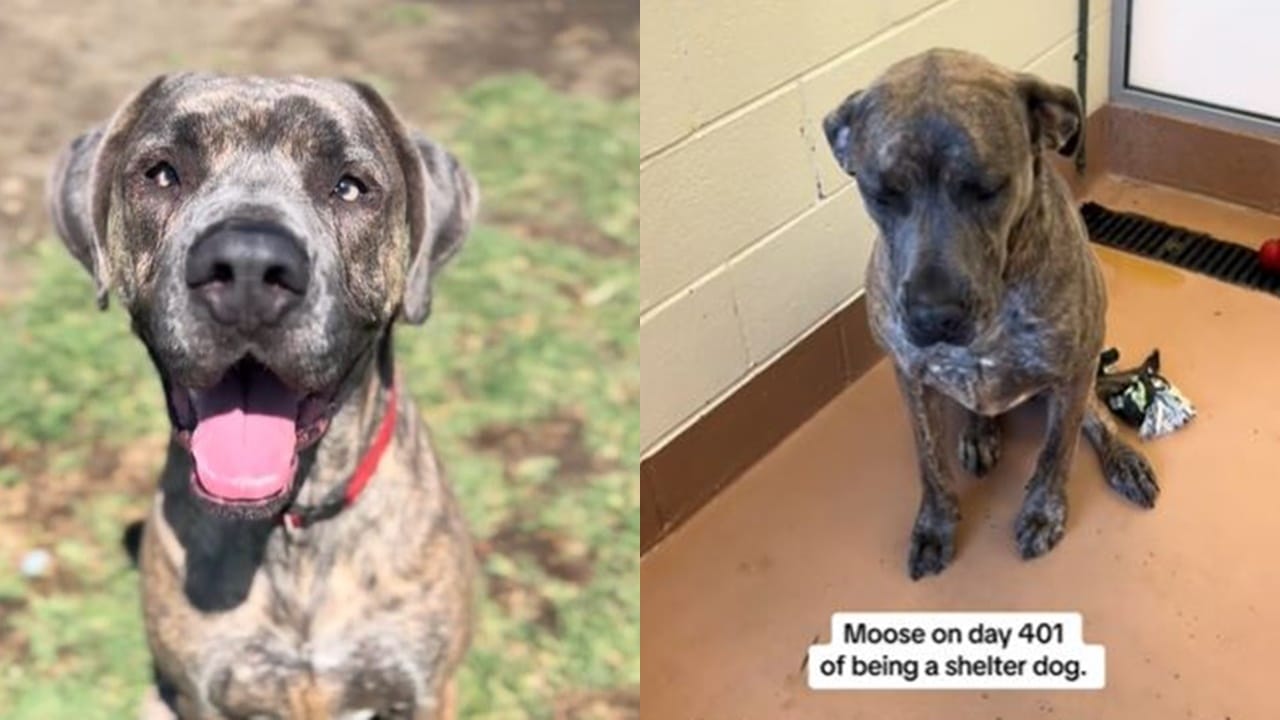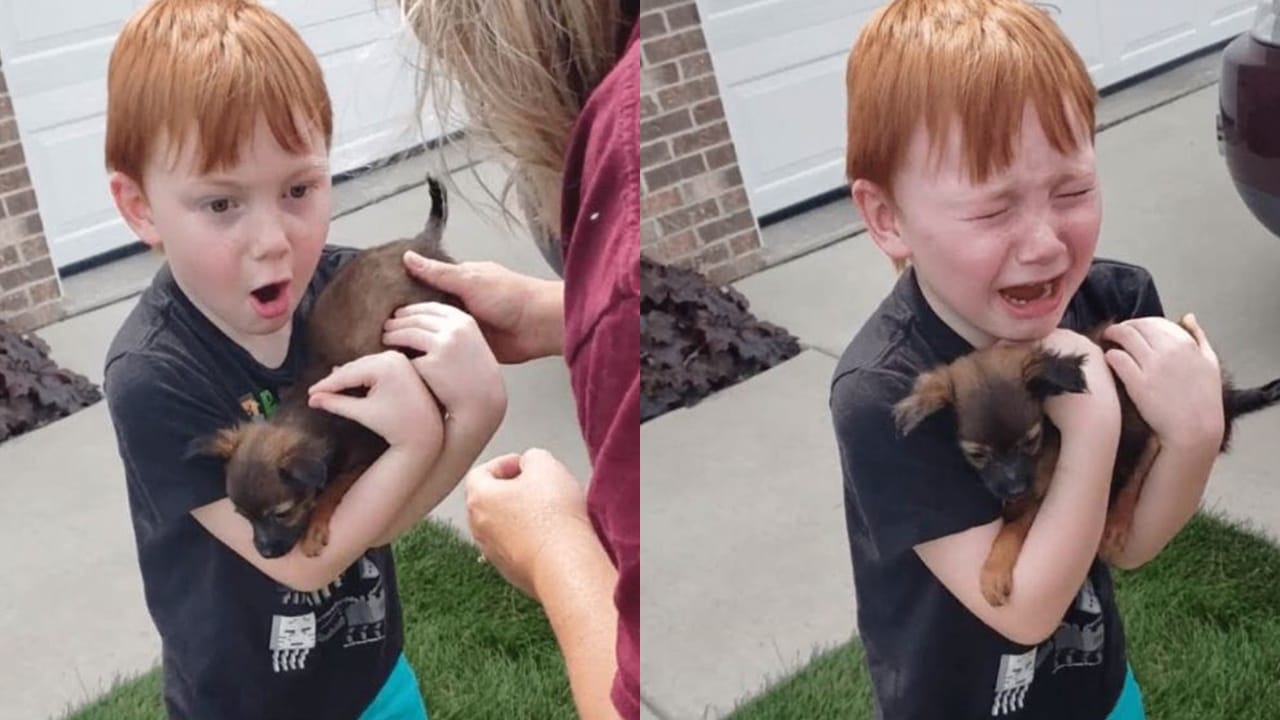If you’ve ever encountered an abandoned baby bird, a wounded squirrel, or a displaced wild animal, you know how heartbreaking it can be to figure out the next steps. Fortunately, North Texas Wildlife Center, a nonprofit located in Plano, is there to guide both people and animals through these challenging situations. Open year-round, this center has been a sanctuary for animals in need, offering them the care and rehabilitation they require to eventually return to the wild.
The work done at the North Texas Wildlife Center is truly inspiring. Every day, they take in animals who have been orphaned, injured, or displaced and provide them with the medical attention and safe environment they need to heal. With the help of a dedicated team of volunteers, the center is making a difference in the lives of thousands of wild animals.
Rescuing the Vulnerable: A Baby Opossum’s Journey to Safety
The compassionate efforts of the North Texas Wildlife Center are perfectly illustrated in a recent rescue. A local family brought in a baby opossum that had been attacked by a dog. The tiny animal was in a vulnerable state, and the family turned to the center for help.

Rebecca Hamlin, president of the North Texas Wildlife Center, immediately examined the opossum. “It has a small injury to its face, but thankfully it doesn’t look too severe,” she said. “We’ll start him on antibiotics and pain medication and give him a safe place to recover. Once he’s strong enough, we’ll release him back into the wild.”
This is just one example of the countless animals that find refuge at the center every year. Each animal, whether it’s a baby opossum or an injured bird, is given the best possible chance to heal and return to its natural environment.
A Hub for Wildlife Rehabilitation: The Center’s Role in Animal Rescue
At the heart of the North Texas Wildlife Center is a dedicated team of volunteers and wildlife experts who work tirelessly to care for animals in distress. According to Hamlin, most of the animals that come to the center are orphans—young creatures that have lost their mothers and need nurturing until they can survive on their own.
But it’s not just orphaned animals that end up at the center. Many of the creatures have been hit by cars, attacked by domestic pets, or injured due to human activity. Some arrive as victims of abuse, often by children who don’t realize the harm they’re causing. Others are displaced by natural disasters, like floods or storms, that force them out of their habitats.
“Our role is to step in when these animals need help,” Hamlin said. “Whether they’ve been injured or orphaned, we provide the medical care and support they need to recover. Our ultimate goal is always to release them back into the wild, where they belong.”

The North Texas Wildlife Center handles a remarkable volume of cases. In 2024 alone, they have already treated over 2,000 animals from 93 different species. These include everything from common local wildlife like squirrels and raccoons to birds like owls and egrets. Each animal receives personalized care, from medical treatment to rehabilitation, until they are ready for release.
Challenging Perceptions: The Importance of Every Animal
Despite the vital work done by the North Texas Wildlife Center, some people don’t immediately understand the value of saving certain species. For example, baby skunks are often met with skepticism. Mela Singleton, the founder of the center, explains that people are sometimes puzzled by the decision to rescue animals they perceive as pests.
“People often ask us, ‘Why would you bother saving a baby skunk?’” Singleton said. “But when they encounter a baby skunk themselves, their whole perspective changes. Suddenly, they realize that every animal has value and deserves a chance to live.”
This shift in perspective is one of the key goals of the wildlife center. By educating the public about the importance of each species, the center helps people see that wildlife plays a crucial role in the ecosystem. Every animal, no matter how small or seemingly insignificant, has a right to thrive. The North Texas Wildlife Center is committed to ensuring that all wildlife, from baby skunks to night herons, receives the care they need.
Open 365 Days a Year: A Lifeline for Animals and People Alike
One of the most remarkable aspects of the North Texas Wildlife Center is its unwavering commitment to being there for animals every single day of the year. The center operates 365 days a year, providing continuous support for wildlife in need. Whether it’s the middle of summer or a freezing winter day, the center’s doors are always open.
The center also serves as a valuable resource for people who encounter wildlife in distress. Not everyone has the knowledge, experience, or tools needed to care for injured or abandoned animals, and that’s where the North Texas Wildlife Center steps in.
“When people find an injured animal, they often don’t know what to do,” Hamlin said. “They want to help, but they may not have the right tools or permits. That’s where we come in. They’ve done their job by bringing the animal to us, and now we take over to ensure it gets the proper care.”
This partnership between the public and the wildlife center ensures that more animals can be saved. By providing people with a place to bring animals in need, the center empowers the community to make a difference in the lives of local wildlife.
Rehabilitating and Releasing: Returning Animals to the Wild
The ultimate goal of the North Texas Wildlife Center is to rehabilitate animals and release them back into the wild. Every rescue is treated with the goal of recovery, and every release is a victory. Once animals have healed and are strong enough to survive, they are returned to their natural habitats, where they can live freely.

This process is the culmination of the center’s efforts. From the moment an animal arrives, the staff and volunteers work tirelessly to ensure that it has the best chance of survival. For animals like the baby opossum that was attacked by a dog, this journey can be long, but the outcome is worth every effort.
“We want these animals to return to the wild and live as they were meant to,” Hamlin said. “When we release an animal, we know we’ve done something truly meaningful.”
Expanding the Mission: Fundraising for a Larger Facility
As the North Texas Wildlife Center continues to grow, so does its need for space. The current facility in Plano is at capacity, and the center is actively fundraising to build a larger space that can accommodate more animals and provide even better care.
Donations are crucial to the center’s mission. Every dollar goes toward the care of injured and orphaned animals, helping to cover medical costs, food, and rehabilitation supplies. By supporting the North Texas Wildlife Center, donors are directly contributing to the survival of wildlife in need.
How You Can Help: Support Wildlife Rescue
There are many ways to support the North Texas Wildlife Center and its mission to save injured and orphaned animals. Donations of any size make a difference, but volunteers are also a vital part of the center’s work. By giving your time or financial support, you can help ensure that animals continue to receive the care they need.
Next time you encounter an animal in distress, remember that the North Texas Wildlife Center is there to help. Together, we can make sure that more wildlife gets the second chance it deserves.








